Principal Investigators
Dr Julie Aspden (she/her)
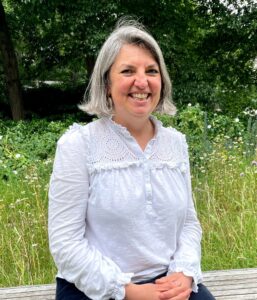
Dr Julie Aspden is the Principal Investigator of RiboCode and contributes to all themes, with an emphasis on Theme 2 (mRNA translation) and Theme 1 (evolutionary genomics). She is an Associate Professor in RNA Biology at the University of Leeds and has 20 years’ experience working on various aspects of RNA biology.
Read more about Julie
Julie’s main research interests are the regulation of mRNA translation, non-coding RNA function and the role of specific RNA-protein complexes. Her group use both Drosophila melanogaster and mammalian neuronal tissue culture to dissect mechanisms of gene expression. They employ a combination of genomics, molecular biology, biochemistry and genetics. Having developed Poly-Ribo-Seq, Julie is a leader in the Ribo-Seq field. She co-founded and is the academic lead for LeedsOmics and strives to create a supportive and diverse research culture.
After reading Biochemistry at The Queen’s College, Oxford, Julie undertook a PhD on the initiation of mRNA translation at the University of Cambridge. Julie’s first postdoc at the University of California, Berkeley, focused on alternative mRNA splicing in fruit flies. She completed her second postdoc at the University of Sussex, defining novel regions of translation. In 2015 Julie was awarded a University Academic Fellowship in Pervasive Transcription at the University of Leeds and established her own research group.
Julie enjoys listening to Bruce Springsteen, playing squash, trying new foods and spending time outside in the countryside with her family.
Dr Juan Fontana (he/him)
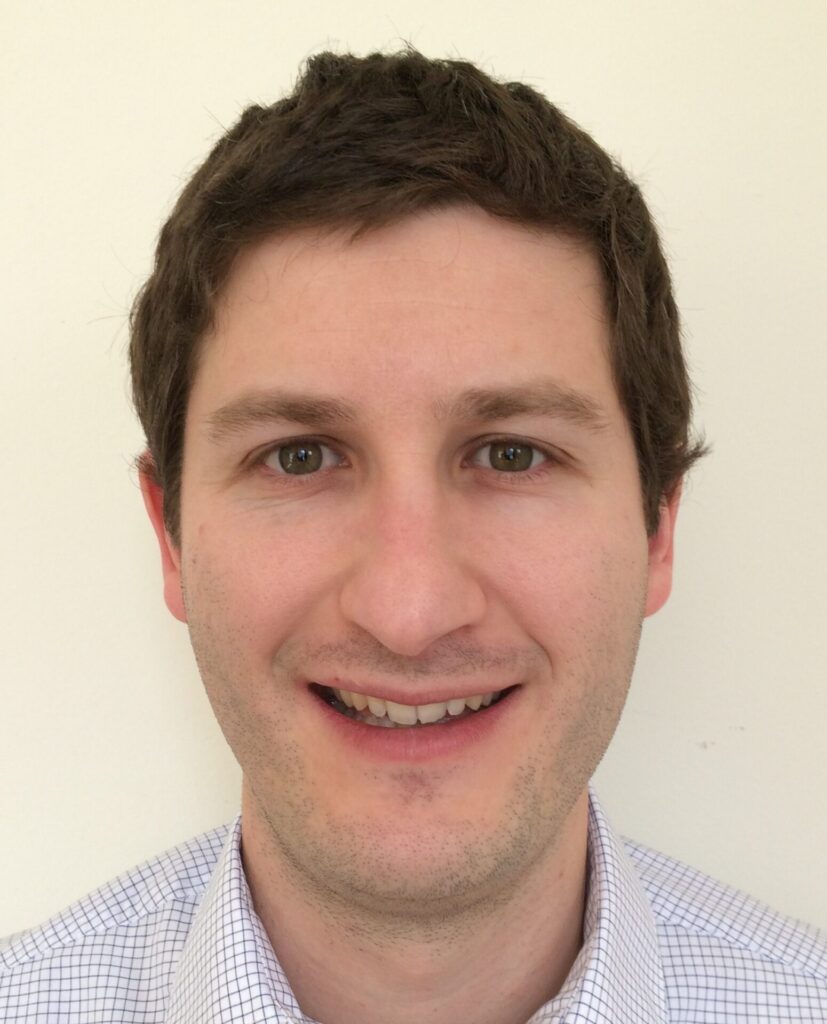
Dr Juan Fontana is a Senior Research Scientist (Investigador Científico) at the Basque Centre for Biophysics (Biofisika), CSIC, Spain, and leads Theme 3 (structure of specialised ribosomes). He is also part of the RiboCode outreach team. Juan has over 15 years’ experience employing cryogenic electron microscopy (cryo-EM) to unravel the structure of viruses and macromolecules.
Read more about Juan
Juan studied Biochemistry at the Universidad Autonoma of Madrid, graduating in 2003. During his PhD (2004 – 2009), Juan was based in Dr Cristina Risco’s lab at the National Centre for Biotechnology in Madrid, where he characterised the replication complexes of the Bunyamwera and Rubella viruses. This work allowed him to elucidate the mechanisms by which viral macromolecular complexes interact with cellular components to create viral factories and to propose novel working models for each replication complex. As a post-doc (2009 – 2016), he worked with Alasdair Steven at the National Institutes of Health in Maryland, on enveloped virus entry and morphogenesis.
In 2016 Juan moved to the University of Leeds as a University Academic Fellow and established his own research group. He was made Associate Professor in 2021, before moving back to his native Spain in 2024. As a PI at Leeds, Juan characterised the structure of Bunyamwera virus ribonucleoproteins, characterised the structural changes in the viral spikes induced by K+ during Bunyamwera virus entry, and structurally characterised heterogeneous ribosomes isolated from different Drosophila melanogaster tissues.
Outside of the lab, Juan enjoys travelling with his family and brewing his own beer.
professor mary o’connell (she/her)
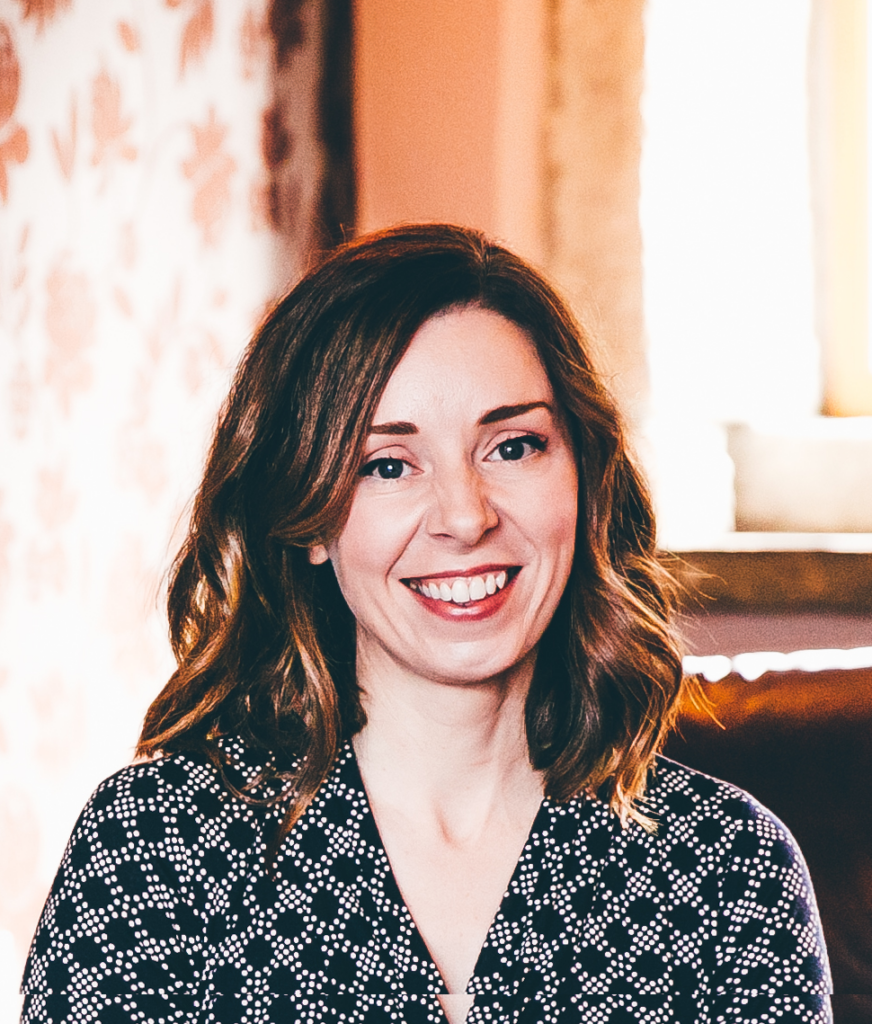
Professor Mary O’Connell is Professor of Zoology at the University of Manchester and leads Theme 1 (evolutionary genomics). She is also part of the IDEA working group. Mary has 25 years’ experience in comparative genomics and phylogenomics, mechanisms of protein evolution, regulatory network evolution and evolutionary theory.
Read more about Mary
Mary gained her Honours degree in Biotechnology with Chemistry from the National University of Ireland Maynooth (NUIM), and went on to complete her PhD on rates of protein change across animals. Following a brief postdoctoral fellowship on the molecular evolution of genomic conflict and imprinting in plants and mammals at University College Cork, she gained a tenured academic post and established her independent research group at Dublin City University. As a Fulbright Scholar at Harvard she continued to work on protein adaptation and function in the Department of Organismic and Evolutionary Biology, and there she began to deepen her connections between her computational predictions and functional work.
In 2015, Mary joined the University of Leeds as a University Academic Fellow. Here she expanded her research group, focusing on functional comparative genomics, and co-founded Leeds Omics to support bioinformatics and computational biology research – significantly increasing grant success rates and facilities for her local community of researchers. Mary moved to the University of Manchester in 2025. She was elected as a Fellow of the Linnean Society in 2017, and in 2019 was appointed Scientific Research Associate of the Natural History Museum in London.
Mary is passionate about open data and open science: in 2018 she was appointed to the scientific advisory board of the European Nucleotide Archive and she has chaired the board since 2021. She was elected SMBE council member in 2019 with responsibilities for mentorship awards, satellite and regional meeting awards.
Outside the lab, Mary enjoys adventures with her young family, spending time at home in Ireland, and art.
professor paolo actis (he/him)
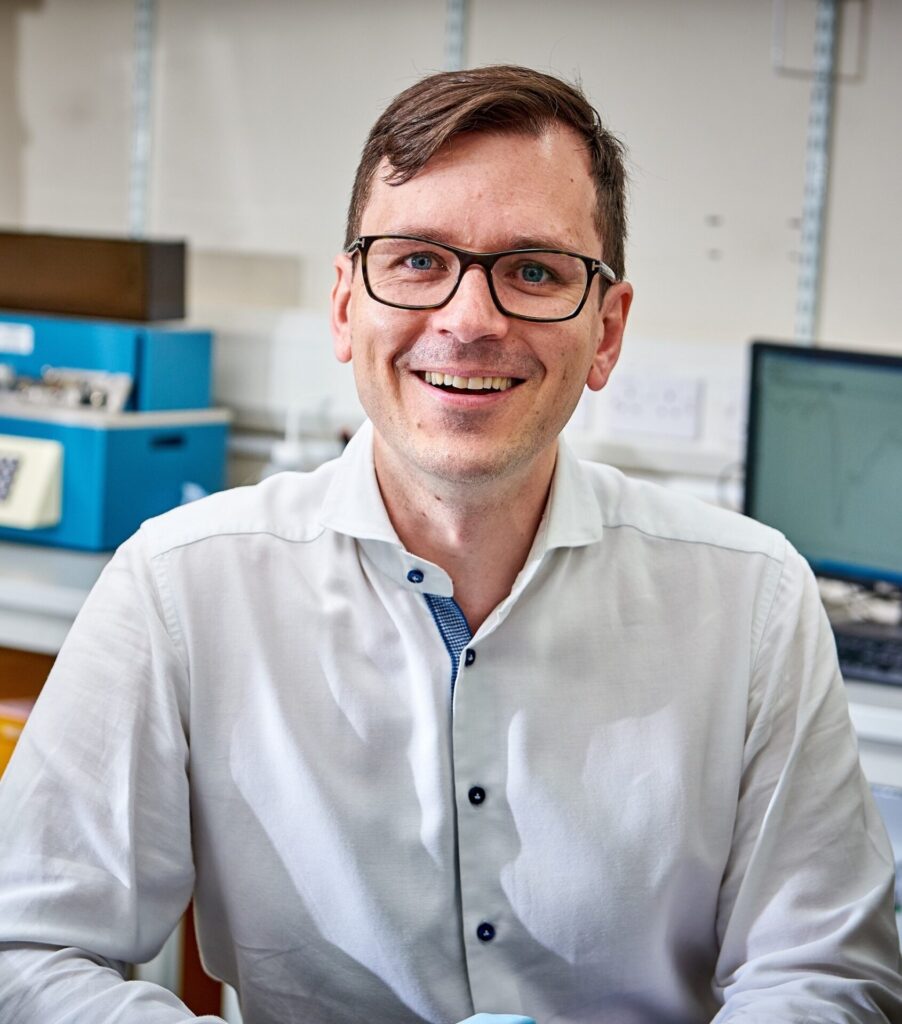
Professor Paolo Actis is an Associate Professor in Bionanotechnology at the University of Leeds and leads Theme 4 (transformative technologies) as well as the industry working group within RiboCode. He has nearly 20 years’ experience working with biologists and physicians to understand the deepest differences between healthy and diseased cells.
Read more about Paolo
Paolo’s research involves the development of nanoprobes for single-cell analysis and manipulation with single molecule resolution. His research aims to develop a new platform for single-cell analysis and manipulation in order to study the dynamic function of individual cells in heterogeneous populations with single molecule resolution. His key research interests are single-cell nanosurgery (including developing an electrical nanobiopsy platform capable of extracting genetic material and organelles from single cells in culture), single molecule biosensing (developing functionalised DNA origami constructs to capture disease biomarkers within biological fluids before analysing them using nanopore sensors which aim to detect tiny amounts of disease biomarkers for rapid diagnosis) and single-molecule nanoinjection (developing a platform that can inject biomolecules one at the time into living cells in culture). A key emphasis of Paolo’s work is to empower the next generation of scientists and engineers.
After graduating with a PhD from the Grenoble Institute of Technology, France, in 2008, Paolo spent four years working on his tan in California, USA, at NASA’s Ames Research Center and the University of California Santa Cruz. In 2012, he crossed the pond again and took up a Research Associate post at Imperial College London, before spending two years at Bio Nano Consulting as a Consultant and Project Manager. Paolo moved to the University of Leeds in 2016 as a University Academic Fellow; being made Associate Professor in 2021 and full Professor in 2025.
In his spare time, Paolo enjoys gardening and cooking (he claims to make the best lasagna this side of the Channel!) and used to play beach volleyball, surf and practice Krav Maga (with very mediocre results). He is a massive Juventus fan!
dr emma thomson (she/her)
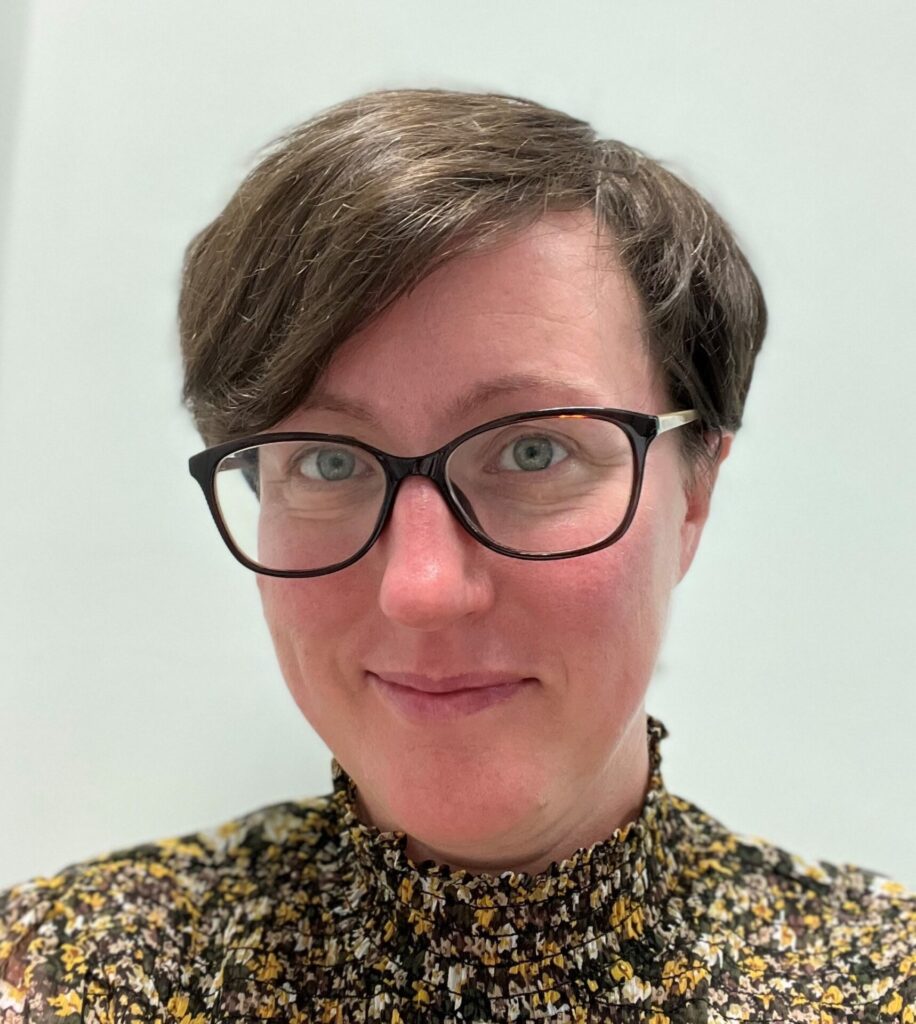
Dr Emma Thomson is a lecturer at the University of Sheffield and has almost 20 years’ experience of investigating ribosomes and how they are synthesised. Emma leads Theme 2 (mRNA translation) and also contributes to Theme 3 (structure of specialised ribosomes). She is also part of the research culture working group within RiboCode.
Read more about Emma
Emma studied Molecular Biology at the University of Edinburgh and graduated in 2001. During her PhD (2003 – 2007), Emma was based in Professor David Tollervey’s lab at the Wellcome Centre for Cell Biology at the University of Edinburgh. Here, she characterised novel ribosome assembly factors in yeast. She then completed a post-doc at Heidelberg University Biochemistry Center (BZH) in Germany (2009 – 2017), where she worked with Professor Ed Hurt and further developed her interest in ribosome assembly.
Emma established her own research group at the University of Sheffield in 2017. They explore ribosome synthesis in yeast and human embryonic stem cells systems using genetic, biochemical and omic approaches.
Dr anton calabrese (he/him)

Dr Anton Calabrese is a Sir Henry Dale Fellow and University Academic Fellow in Biological Mass Spectrometry at the University of Leeds. Anton works on Theme 3 (structure of specialised ribosomes) and Theme 4 (transformative technologies), as well as leading the RiboCode sustainability focus group. He has 15 years’ experience developing and deploying mass spectrometry-based methods to study protein structure and function.
Read more about Anton
Anton completed his undergraduate studies in Chemistry/Biochemistry at the University of Adelaide in Australia, where he also undertook a PhD. His work focused on the development of novel mass spectrometry amenable crosslinking reagents and the study of amphibian antimicrobial peptides. Upon graduating in 2013, Anton relocated to the University of Leeds as a postdoctoral researcher. Here, he developed new methods in native mass spectrometry, chemical crosslinking and fast photochemical oxidation of proteins and used these methods to study systems spanning membrane proteins, chaperones and amyloid. In 2020 he began a new role at the University of Leeds as a Group Leader, Sir Henry Dale Fellow and University Academic Fellow.
Outside of the lab Anton likes to travel, bake, spend time at his allotment, take his dog for walks in the countryside and drink craft beer!
Professor Ade Whitehouse (HE/HIM)

Professor Ade Whitehouse is a Professor of Molecular Virology at the University of Leeds with over 30 years’ research experience. He contributes to Theme 2 (mRNA translation).
Read more about Ade
Ade’s research group – the Whitehouse lab – aim to understand how viruses cause cancer and develop novel antiviral strategies to prevent infection and tumourigenesis. Their current research is funded by MRC and BBSRC project grants to identify virus-host cell interactions controlling virus and cellular RNA processing during infection. Ade also contributes to RiboCode’s ECR career development working group.
Ade obtained a BSc in Microbiology from the University of Sheffield in 1991 and a DPhil in Molecular Virology from the University of Oxford in 1994. Following postdoctoral work he was awarded an MRC Non-Clinical Fellowship in 1998, before joining the School of Molecular and Cellular Biology at the University of Leeds as a Lecturer in 2002. He was subsequently appointed to Professor of Molecular Virology in 2010.
Ade is also a Visiting Professor at Rhodes University, South Africa, where he leads an international KSHV consortium funded by the Royal Society, MRC and the International Strategy Fund. He has been recipient of prestigious awards including the SGM Fleming Prize, ESCMID Young Investigator Award and EACR Research Awards.
dr chris west (he/him)

Dr Chris West is a senior lecturer at the University of Leeds and has more than 25 years’ experience of plant molecular biology. Chris contributes to Theme 2 (mRNA translation) and RiboCode’s impact focus group.
Read more about Chris
Chris studied natural sciences at the University of Cambridge and graduated in 1994. His PhD at the University of Manchester focussed on membrane transport proteins in barley seeds. Two post-doctoral positions in the same lab led to an interest in genomic maintenance in plants, in particular the repair of broken chromosomes. This included a brief foray into the world of translation in the control of DNA ligase sub-cellular localisation.
In 2004, Chris was awarded a BBSRC David Phillips Fellowship to establish his lab at the University of Leeds. Work has focussed on mechanisms of recombination and DNA damage responses in plants, including the importance of genome maintenance in seeds. He offers support for the plant molecular biology aspects of the RiboCode project.
Postdoctoral Researchers
Dr Karl Norris (he/him)

Dr Karl Norris is postdoctoral researcher at the University of Leeds whose work forms part of Theme 2 (mRNA translation). He also contributes to RiboCode’s ECR career development work.
Read more about Karl
Karl studies the function of heterogeneous ribosomes in Drosophila melanogaster. His main research interests are translational regulation and RNA biology.
After completing a BSc and MSc (by research) at the University of Central Lancashire, Karl moved to Dr Susan Campbell’s group at Sheffield Hallam University to undertake a PhD investigating the role of eIF2B bodies in translational regulation. His first postdoc at Lancaster University focused on biomaterials for bone regeneration. In 2019, Karl joined the University of Leeds where he worked alongside Dr Julie Aspden and Dr Juan Fontana to investigate the structure and function of heterogeneous ribosomes in the gonads of D. melanogaster. Karl continues to investigate the function of heterogeneous ribosomes in D. melanogaster as part of Theme 2.
Outside of work, Karl enjoys running, travelling and playing video games. He is a devout football fan.
Dr Alan Beavan (he/him)
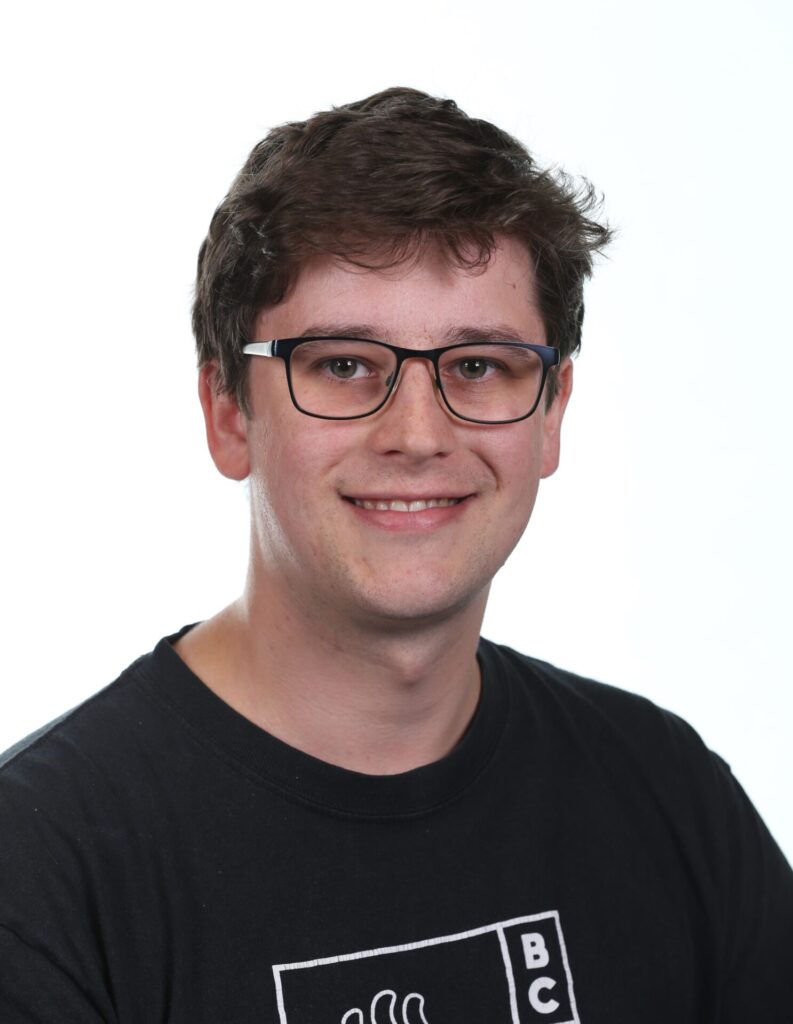
Dr Alan Beavan is a postdoctoral research associate at the University of Manchester. He works on Theme 1 (evolutionary genomics) and is part of the research culture working group.
Read more about Alan
Alan is an evolutionary biologist, interested in how molecules (DNA, RNA and proteins) evolve and how this has shaped modern biodiversity.
After graduating with a Master’s degree in Genetics from the University of Manchester, he completed a PhD at the University of Bristol. There, he studied rates of genome evolution over large timescales under the supervision of Professors Davide Pisani and Phil Donoghue. During this time he became interested in the application of state-of-the-art statistical and computational techniques to study biological problems.
A short postdoctoral position at the University of Nottingham followed, in which he was able to further pursue this interest: applying machine learning methods to the understanding of gene gain and loss in bacterial genomes. In collaboration with Professor James McInerney, he promoted a new way of understanding the bacterial “pangenome” as a dynamic set of genes and niches in which they fit. Alan then started his postdoc work on the RiboCode project at Nottingham, before moving with Prof Mary O’Connell to the University of Manchester.
Outside of science he spends an unhealthy amount of time watching, listening to and thinking about pop music. He also likes observing nature, especially birds, and going to see anything that makes him laugh.
Dr Nan Zhao (she/her)
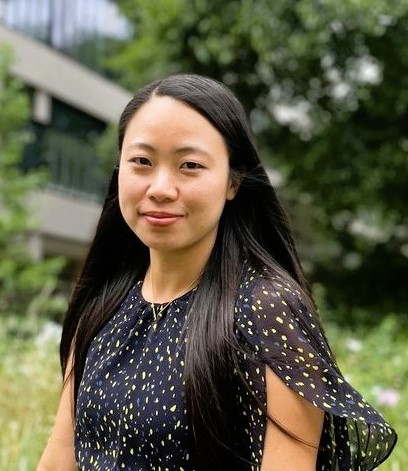
Dr Nan Zhao s a postdoctoral researcher working on Theme 2 (mRNA translation) in Dr Julie Aspden’s and Dr Chris West’s labs at the University of Leeds. She is also involved in RiboCode’s work on sustainability.
Read more about Nan
Nan is a researcher specialising in molecular biology, with a particular focus on plant genetics and epigenetics. Her research interests lie in the field of gene expression regulation.
After completing her undergraduate studies in Chemistry and Biology at Jilin University in China, Nan obtained her PhD in Biochemistry and Molecular Biology from Tsinghua University and the National Institute of Biological Sciences, Beijing. Following her doctoral studies, Nan worked as a Research Assistant at the Institute of Genetics and Developmental Biology, Chinese Academy of Sciences, before joining the University of Leeds as a senior research technician in 2023. She moved to a postdoc position in 2024.
Outside of work, Nan likes traveling, cooking and exploring different cuisines. She also enjoys spending quality time with her family and playing board games.
Dr JO CUNNINGHAM (she/her)
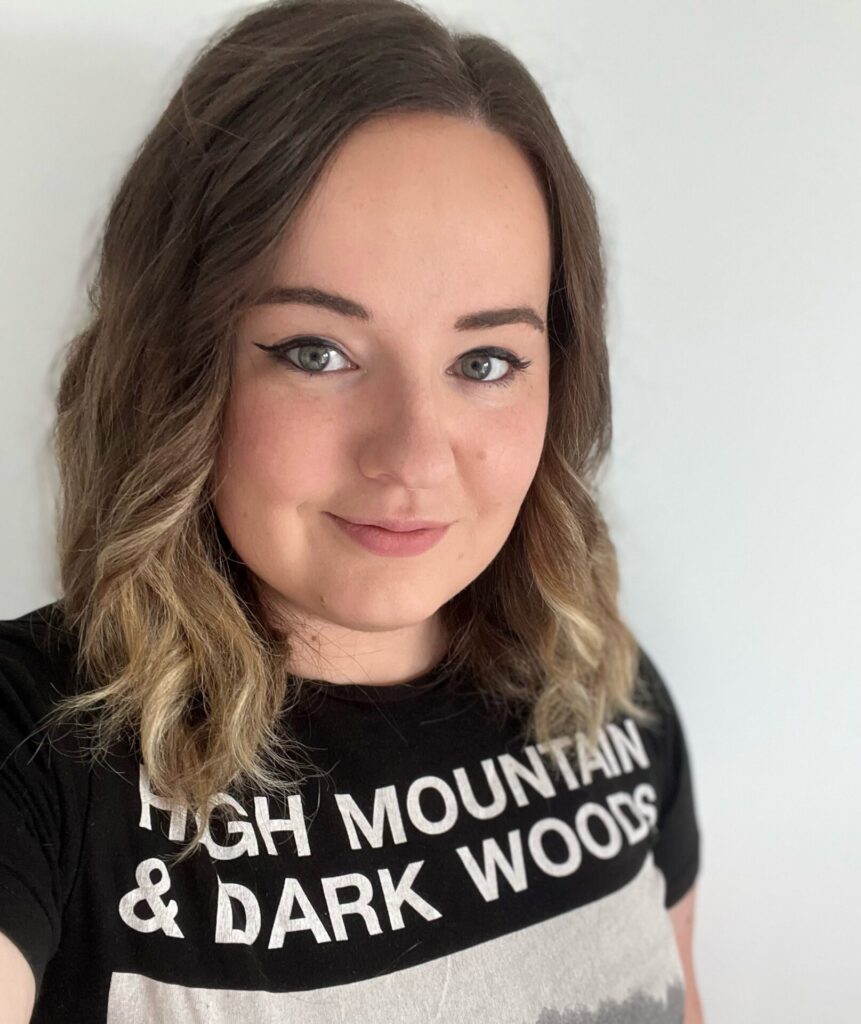
Dr Jo Cunningham is a postdoctoral researcher at the University of Sheffield. Her work contributes to Theme 2 (mRNA translation) and Theme 3 (structure of specialised ribosomes). Jo also contributes to RiboCode’s research culture working group.
Read more about Jo
Jo studied Biochemistry for her undergraduate MBiolSci at the University of Sheffield before moving to the University of Manchester to undertake a PhD in Professor Chris Grant’s lab. Here, she worked on the regulation of translation initiation and the role of eIF4G in Saccharomyces cerevisiae. She is currently using both yeast and human embryonic stem cells to decipher the roles of heterogeneous ribosomes.
Outside of work, Jo enjoys hiking, playing video games, and reading fantasy novels.
dr bulat fatkhullin (he/him)
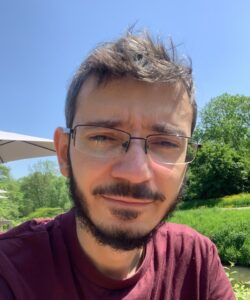
Dr Bulat Fatkhullin is a postdoctoral researcher at the University of Leeds. Bulat’s work contributes to Theme 3 (structure of specialised ribosomes). He is also part of RiboCode’s outreach team.
Read more about Bulat
Bulat obtained his Bachelor’s and Master’s degrees in Physics at Kazan Federal University, Russia. He then moved to the Institute of Protein Research at the Russian Academy of Sciences to begin his postgraduate programme in structural biology, before undertaking a PhD in Dr Marat Yusupov’s lab at IGBMC, Strasbourg. Bulat’s research was focused on understanding the structure of ribosome-associated proteins (ribosome hibernation and ribosome maturation factors) and their complexes, employing x-ray crystallography and cryo-EM techniques to study ribosomes from the bacterium Staphylococcus aureus.
In 2023, Bulat joined the University of Leeds and began his research into the structural aspects of ribosome heterogeneity in eukaryotes. Bulat is based in Dr Juan Fontana’s lab and works closely with Dr Julie Aspden and Dr Anton Calabrese.
Outside of the lab Bulat likes playing board games.
Postgraduate Researchers
veronica thuburn (she/her)

Veronica Thuburn is a PhD student at the University of Sheffield, working on Theme 2 (mRNA translation). She is based in the Thomson lab. In addition, Veronica is part of RiboCode’s outreach team.
Read more about Veronica
Veronica studied for an undergraduate MSci in Biochemistry at the University of Manchester, where her Master’s project investigated nascent polypeptide chain handover at the yeast ribosome. She is now undertaking her PhD with supervision from Dr Emma Thomson and Dr Julie Aspden. She works with yeast and human embryonic stem cells to explore ribosomal RNA methylation in heterogeneous ribosomes.
Outside of science, Veronica enjoys latin and ballroom dancing as well as needle crafts.
tayah hopes (she/her)
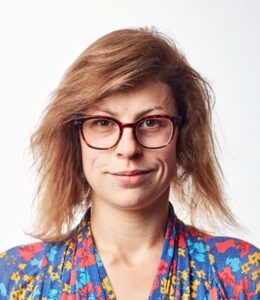
Tayah Hopes is a PhD student based in the Aspden lab at the University of Leeds. Her work contributes to Theme 2 (mRNA translation). Tayah is also part of RiboCode’s outreach team.
Read more about Tayah
Tayah is taking advantage of the ribosome profiling expertise in the Aspden lab and the collaborative nature of RiboCode. Using a combination of wet lab and bioinformatics techniques, she plans to explore the functional and structural consequences of ribosome heterogeneity.
When not pipetting, Tayah spends her time in the mountains. She particularly enjoys hiking, rock climbing, cycling, and cooking large portions of food.
TESSA CHAN (she/her)

Tessa Chan is a PhD student in the Thomson lab at the University of Sheffield. Tessa’s project is also associated with Theme 2 (mRNA translation). She is also involved in the research culture working group.
Read more about Tessa
Tessa obtained a BSc in Cell Biology at University College London, and an MRes in Biomedical Research at Imperial College London. During this time, she developed an interest in studying the regulation of cell fate decisions.
Through her PhD project, Tessa is exploring the role of specialised ribosomes in maintaining pluripotency in human embryonic stem cells.
Outside of research, Tessa enjoys playing video games and DnD.
ella dimascio (she/her)
Ella Dimascio is a PhD student based in the Whitehouse lab at the University of Leeds. Her project also contributes to Theme 2 (mRNA translation). Ella is also an active member of RiboCode’s outreach team.
Read more about Ella
Ella studied for a BSc in Biology at the University of Salford, before moving to the University of Leeds to complete an MSc in Infection, Immunity, and Human Disease. During this time she was awarded the Bioscience Prizes for Best Student and the Best Project.
Ella is studying how viruses make specialised ribosomes to preferentially translate viral mRNAs over host cell transcripts during infection. Specifically, her PhD project aims to understand how Kaposi’s sarcoma-associated herpesvirus modulates ribosome biogenesis pathways to regulate RNA processing in human B-lymphocytes.
deanna saunders (she/her)

Deanna Saunders is a PhD student at the University of Leeds, working on Theme 4 (transformative technologies). Deanna works across Dr Paolo Actis and Dr Julie Aspden’s labs.
Read more about Deanna
Deanna graduated from the University of Worcester in 2017 with a BSc in Biochemistry. She has extensive experience in the biotechnology industry, working on oncolytic viruses, gene therapy and vaccine development. Deanna’s PhD project focuses on developing innovative nanopore technology to characterise specialised ribosomes. Outside of work, Deanna enjoys reading books and graphic novels, playing video games (especially RDR2 and The Witcher 3), and watching football – she is an avid Liverpool supporter!
cath cockeram

Cath Cockeram is a PhD student in the Calabrese lab at the University of Leeds. Cath’s project is associated with Theme 3 (structure of specialised ribosomes).
Senior Research Technicians
dr alison wood (she/her)
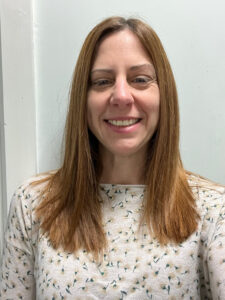
Dr Alison Wood is a senior research technician working on Theme 2 (mRNA translation) in Dr Emma Thomson’s lab at the University of Sheffield. She is also part of RiboCode’s sustainability working group.
Read more about AlisonAlison is a researcher with over 20 years’ experience working in a wide range of labs. Starting out as a Biomedical scientist in a busy NHS microbiology diagnostic lab she later went on to study for a PhD in bacterial N-linked protein glycosylation in Manchester. She has worked as a research assistant/technician for the last 10 years in labs encompassing hearing research, research into the stringent response in the superbug MRSA and undergraduate/masters teaching technical support at Sheffield Hallam university and the University of Sheffield.
Outside of work she enjoys yoga, swimming, family days out and spending time with friends.
Alex Goncalves (he/him)

Alex Goncalves is a senior research technician working on Theme 2 (mRNA translation) in Dr Julie Aspden’s lab at the University of Leeds. He is also part of RiboCode’s research culture working group.
Read more about Alex
Alex completed his MSci in Human Genetics at UCL, which included an undergraduate research project on the role of dFOXO in Drosophila ageing, before moving to King’s College London as a research technician. In 2022, Alex moved to Vivan Therapeutics where he focused on the development of personalised cancer therapies using Drosophila model systems. Alex joined the RiboCode team in 2025, bringing his experience of working with fruit flies to help advance our work on mRNA translation.
Outside of work Alex enjoys watching football, writing about football, travelling and Belgian beer.
tayah hopes (she/her)
In addition to her role as a RiboCode postgraduate researcher, Tayah is a senior research technician working on Theme 2 (mRNA translation) in Dr Julie Aspden’s lab.
Read more about TayahTayah is a molecular biologist with over eight years’ experience using wet lab techniques to investigate gene regulation. After completing a BSc in Biology at the University of Leeds, Tayah began her career as a research technician in the Centre for Plant Sciences, investigating stress‐responsive translational regulation. She then began using Drosophila melanogaster as a model organism to characterise cytoplasmic lncRNAs and the tissue-specific idiosyncrasies of ribosomes.
Bioinformatician
dr elton Vasconcelos (he/him)
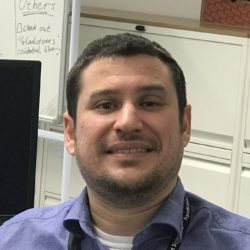
Dr Elton Vasconcelos is a senior bioinformatics researcher and contributes to Theme 1 (evolutionary genomics) and Theme 2 (mRNA translation).
Read more about Elton
Elton is based in Leeds Omics at the University of Leeds and has over a decade’s experience in computational approaches. His research interests focus on the control of gene expression of both hosts and pathogens on their respective diseases.
Elton received his PhD in Cell and Molecular Biology from the University of Sao Paulo, Brazil, in 2011 and was awarded two postdoctoral fellowship grants in the fields of omics (Center for Infectious Disease Research, Seattle, USA: 2013–2014) and bioinformatics relating to pathogens (University of Sao Paulo, Brazil: 2015–2016). During his time in Seattle, Elton played a key role in pioneering a ribosome profiling technique in the protozoan parasite Trypanosoma brucei, in a collaboration that included Dr Nick Ingolia. Elton then spent two years at the Western University of Health Sciences, California, building computational workflows for microbial community analysis in veterinary medicine, before joining the University of Leeds in 2019.
Project Officer
Dr Ashleigh Goodenough (she/her)
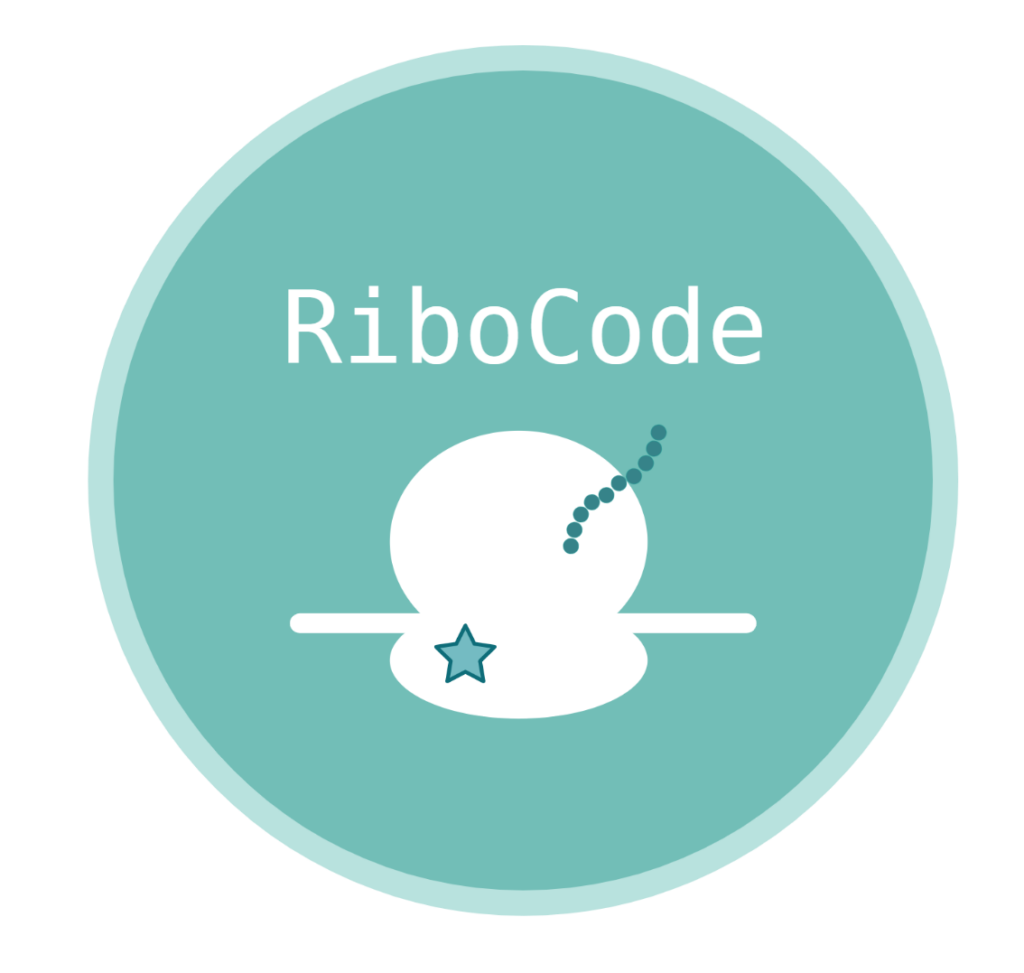
Dr Ashleigh Goodenough is the RiboCode project officer.
Read more about Ashleigh
Ashleigh studied Neuroscience as an undergraduate at the University of Leeds and then continued on to do a Master’s of Research and PhD, focussing on the neural extracellular matrix and neuronal plasticity. After graduating at the end of 2024, she is excited to pursue a career in research project management.
Outside of work, Ashleigh enjoys yoga, watching films and growing mushrooms.
Alumni
Chalmers Chau (he/him)
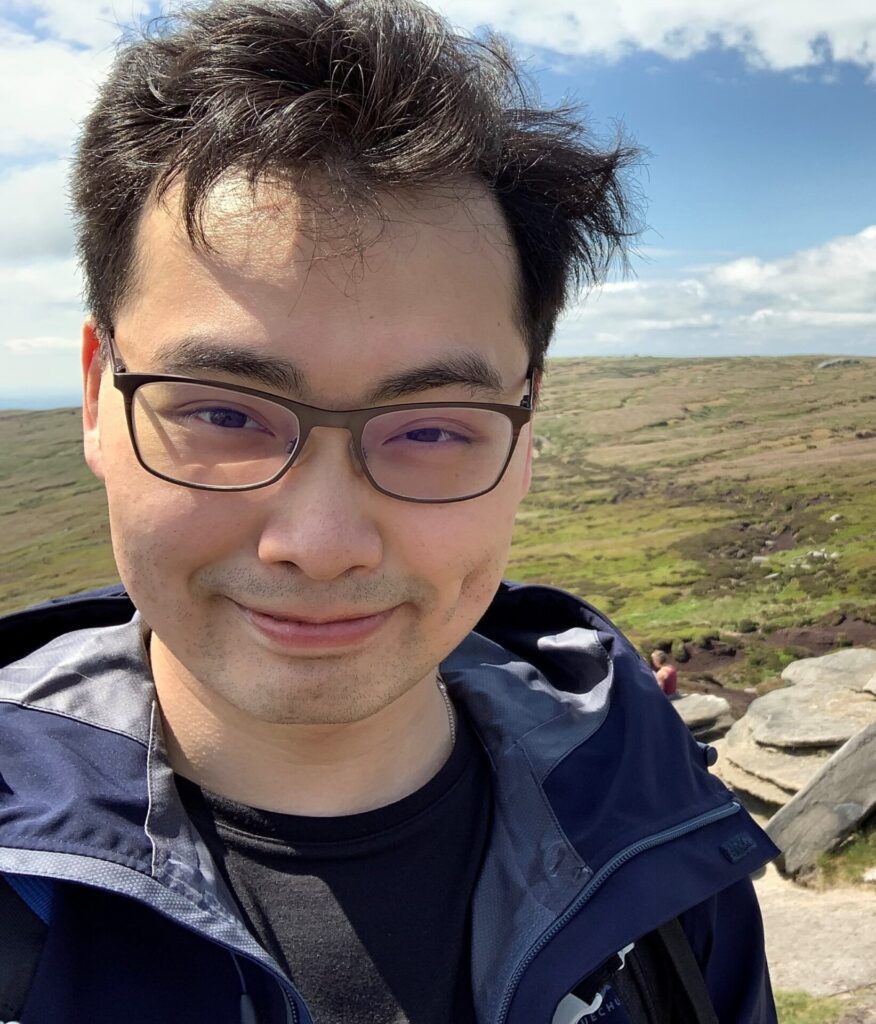
Dr Chalmers Chau contributed to theme 4 (transformative technologies) as a postdoctoral researcher at the University of Leeds from 2023 to 2025. He is now a research fellow within the Faculty of Engineering and Physical sciences.
Read more about ChalmersChalmers’ research interests primarily focus on the development, integration, and implementation of nanotechnologies for biosensors and biomolecule characterisation, as well as polymer science.
After completing a BSc in Biomedical Sciences at Queen Mary University of London and an MRes in Translational Neurology at University College London, Chalmers earned a PhD in molecular and cellular biology from the University of Leeds. Here, he focused on single molecule analysis using solid-state nanopores and single cell manipulation with scanning probe microscopy under the supervision of Dr Paolo Actis, Dr Eric Hewitt and Professor Sheena Radford. Subsequently, Chalmers completed postdoctoral research on single cell nanobiopsy transcriptomics of glioblastoma cells and developed biosensors utilising DNA nanotechnology and solid-state nanopores. Currently, his work involves integrating solid-state nanopores into mass spectrometers for parallel analysis of specialised ribosomes.
In addition to his research work, Chalmers is involved in the University of Leeds Open Research Advisory Group, where he provides input on open research policy, particularly with regards to research method reproducibility. He is also a Recognised Associate Research Supervisor, accredited by the UK Council for Graduate Education.
Outside of research, Chalmers enjoys bouldering and sponsoring guide dog puppies through Guide Dogs UK. He also enjoys visiting zoos, IKEA and cinemas. Penguins and giraffes are particularly fascinating to him – they are “giraffic”.
